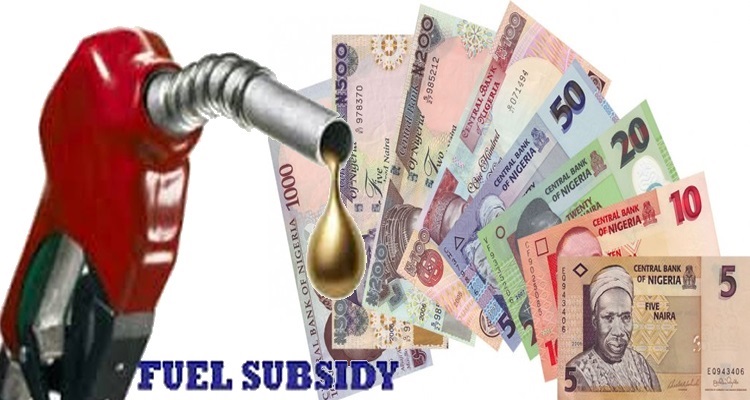Fuel subsidy: what’s the truth?
Just before the Easter holidays, there was the usual seasonal panic over rumours that fuel prices would be increased by the NNPC. The denial by the corporation did nothing to re-assure us that the rumour was a puff of smoke. We had seen that a million times in the past. Quite often, what started as […]

Fuel subsidy
Just before the Easter holidays, there was the usual seasonal panic over rumours that fuel prices would be increased by the NNPC. The denial by the corporation did nothing to re-assure us that the rumour was a puff of smoke. We had seen that a million times in the past. Quite often, what started as a rumour eventually became a fact. Fuel queues immediately sprang up in our towns and cities. Happily, it did not happen; at least not yet.
In its editorial last week Daily Trust asked the federal government to “come clean on fuel subsidy.” I am afraid that is not likely to happen. I can find no evidence on the part of both the federal government and the NNPC to make this lingering source of public anxiety transparent. The facts are likely to remain shrouded in opacity for a long time to come.
We hailed this administration at its inception when it announced that the subsidy regime had come to an end at long last. The administration of the fuel subsidy regime was riddled with corruption. Ending it meant closing one avenue through which unscrupulous Nigerians bleed their own country. It has since turned out that the federal government either misled or deceived us. It never ended fuel subsidy.
The last time we had a fuel crisis was December 2017/January 2018. In his new year broadcast to the nation, President Muhammadu Buhari blamed the fuel crisis on saboteurs. He said he was “determined to get to the root of this collective blackmail of all Nigerians and ensure that whichever groups are behind this manipulated hardship will be prevented from doing so again. We must change our way of doing things or we will stagnate and be left behind in the race to lift our people out of poverty.”
The implication of that last sentence could not have been lost on the president. The fuel subsidy was not forced on the country by those who were bent on profiting at its expense. It resulted from the failure of our local refineries to meet our domestic needs. To meet the short fall, fuel importation became an avenue for making quick money by those connected with the powers that be because the NNPC could not afford to do it alone. Government, aware of the political implications of making us pay more like citizens of non-oil-producing countries decided to absorb part of the cost of fuel importation. Fuel subsidy was a purely political attempt by the government to make the people feel that they too could chop from the big bowl of our petro-dollar wealth.
It was probably conceived as a short term measure. It has since become a permanent part of our economic management or mismanagement. We have not changed our way of doing things. If we did, the refineries could be humming to full production capacity. And our domestic fuel needs would be met. We are not just stagnating; we are rapidly retrogressing in all the indices of human development. Buhari promised change. Time to change how we do business in the oil industry.
Perhaps the only surprise change here is that fuel subsidy is buried under a new bureaucratic title of “under recovery.” The federal government does not formally budget for fuel subsidy any more and can argue that it has been abolished. It is a ruse because under the new policy, according to the Daily Trust editorial, “it diverts some proceeds from the sale of crude oil abroad to finance the import of refined fuel for domestic need, which it in turn sells at a fixed price to marketers.” This costs the nation a tidy one trillion Naira a year. We now know, of course, that fuel is subsidised at N26 per litre. This is the difference between the landing cost of N171 per litre and the pump price of N145 per litre.
The federal government is torn between the political economy of the subsidy regime and the informed advice of foreign experts on the options before it. The International Money Fund and the World Bank are the leading voices opposed to fuel subsidy. The managing director of IMF, Mrs Christine Lagarde once more recently advised the federal government to end the fuel subsidy and spend what it saves from it on health, education and infrastructure. She said: “As far as Nigeria is concerned, with the low revenue mobilisation that exists in the country; in terms of tax to GDP, Nigeria is amongst the lowest. A real effort has to be done in order to maintain a good public finance situation for the country.”
Her advice makes economic sense but I do not think the federal government would be persuaded to accept it. The problem is a combination of sentiment and politics. But for how much longer must the nation dance around a problem crying for a simple solution? There should be no sentiment about this any more. The fuel subsidy must go. But we must get the refineries working. It is clear that getting the refineries to work is beyond the capacity of the NNPC. The solution lies in the involvement of private investors. They are waiting to step in. Government should let them by selling off the refineries to them. Government involvement in economic and business enterprises has become anachronistic. Buhari promised us change. Let him demonstrate it in the oil industry and change the way we do business there. It could help to rescue our nation from stagnation and the endless crises in fuel scarcity periodically induced by the oil marketers to bleed the people.
